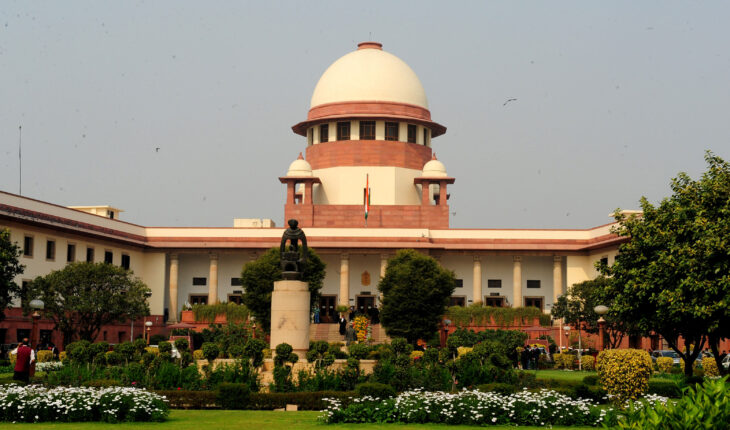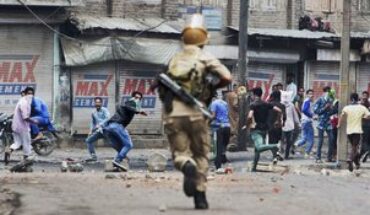The Supreme Court has expressed shock at the large number of people languishing in jails in “complete violation” of their rights despite recommendations for their release by the legal services authority, saying such a situation was unacceptable.
“What is this happening? People are languishing in jails and there is problem of overcrowding of jails also. Look at the NALSA affidavit. It gives an indication what is going on,” the apex court reportedly told the government.
A bench comprising Justices Madan B Lokur and Deepak Gupta referred to the figures and told Attorney General K K Venugopal that there were thousands of prisoners who were not released from jails by the states even after being granted bail or completing their sentences, media reports said.
Referring to the data relating to such inmates contained in an affidavit filed by National Legal Services Authority (NALSA), the bench reportedly termed it as a “pretty shocking state of affairs” and said this situation cannot be accepted.
When the Attorney General told the bench that the Centre has been issuing advisories to the states from time to time to release such persons from jails but they were not doing it, the bench retorted: “You should stop advising the states if they are not listening to you. It cannot go on like this. You are giving advise to states and it is thrown into the waste basket.”
Venugopal was quoted as saying that advisories have been ignored by the states and the court should ask the state governments about it.
During the hearing, advocate Gaurav Agrawal, the amicus curiae in the matter, gave a note containing a proforma or questionnaire prepared by him for responses to be given by the states on various aspects of jail and prison management, reported PTI.
Agrawal told the court that he had circulated it to the Ministry of Home Affairs yesterday and would forward it to the state governments as well.
Venugopal said the concerned Ministry officers would render all assistance in finalising the questionnaire within 10 days and would also advise states to give assistance in this regard.
“We find it necessary to give only 10 days since the affidavit filed by NALSA on or about August 11, indicates that a very large number of persons are still in prison in complete violation of their rights under Article 21 of the Constitution. This situation simply cannot be accepted,” the bench noted in its order and posted the matter for hearing on October 31.
The court accepted the suggestions of Attorney General and asked three state — Madhya Pradesh, Maharashtra and Uttar Pradesh — to file an affidavit within 10 days explaining why the recommendations of the district legal services authority and undertrial review committee to release persons from jails were not accepted.
“The affidavits be filed by state governments positively on or before October 25. We make it absolutely clear that extension of time will not be granted. If necessary, we may be required to summon the Chief Secretary of these three states as suggested by the Attorney General if there is no satisfactory answer about why persons are not being released in spite of the recommendations made,” the bench reportedly said.
“We are compelled to pass this order since we have been shown figures from the affidavit filed by NALSA which indicate a pretty shocking state of affairs,” it said.
The top court also reportedly asked the states to explain how there were instances of more persons being released from jails than what was recommended by legal services authority or by the undertrial review committee.
The bench is hearing a 2013 PIL on prevailing inhuman conditions prevailing in 1,382 prisons across the country, media reports said.
On September 15, the court had passed an order on the issue of custodial deaths and said that custodial death was a crime and such incidents indicate the “apparent disdain” of the State to the life and liberty of prisoners. It had also passed a slew of directions over unnatural deaths and on prison reforms across India.




